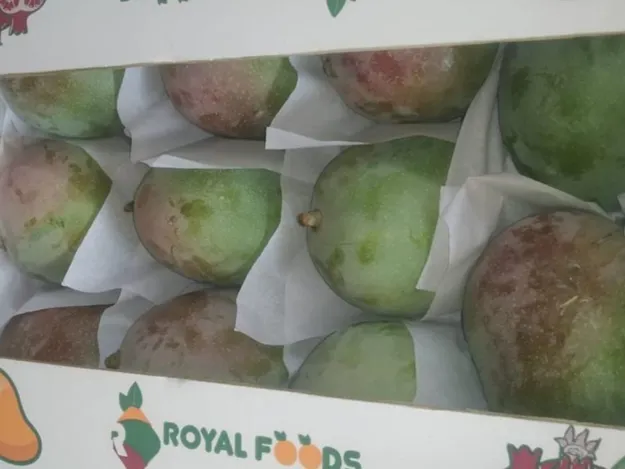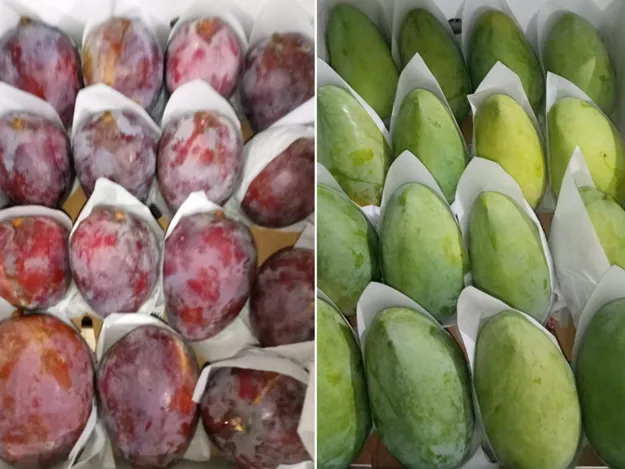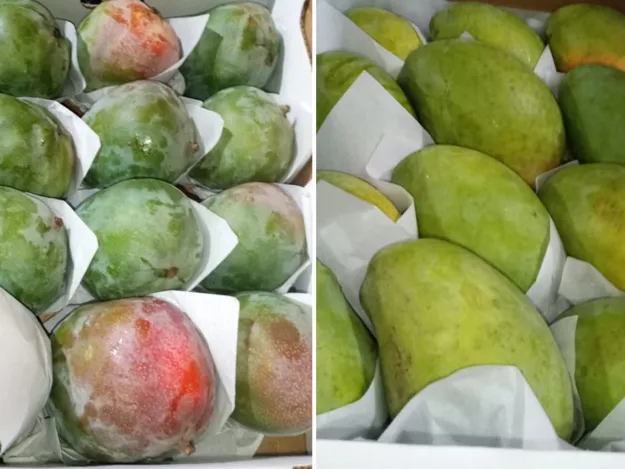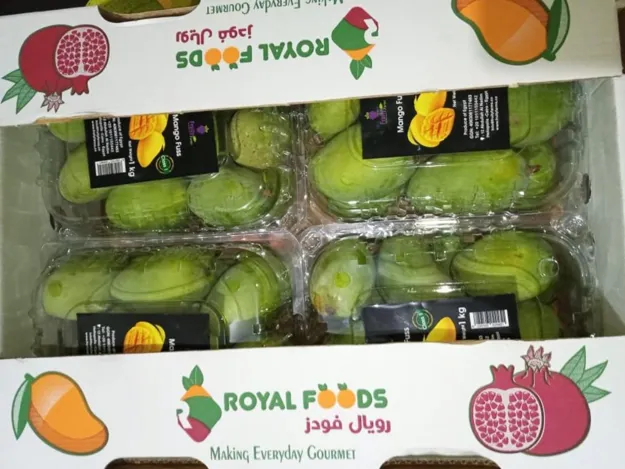The whistle blows for the Egyptian mango season. From July 20 to almost the end of the year, Egyptian exporters offer their calendars to over 50 countries where these mangoes are shipped. According to Abdullah Elrehiewy, CEO of Royal Foods, "Mangoes have become the emblem of summer fruits in Egypt and have a worldwide hype".

Elrehiewy tells the saga of Egyptian mangoes: "Mohamed Ali Pasha, ruler of Egypt between 1805 and 1848, brought mango seedlings to Egypt from Southeast Asia, where they were very popular at the time. Today, Egypt produces over 200 varieties of mango, with a wide range of aesthetic and taste characteristics. The most popular Egyptian varieties are Awees, Fas, Taymour, Alfons, Hendi Menshawi, Kobania, Zebda, Mabrouka, Arnaba, Awees, and Sedika. Among foreign varieties, Kent, Keitt, Heidi, Naomi, Tommy Atkins, and R2E2 are the most widely grown. According to data from the Ministry of Agriculture and Land Reclamation in 2020, the total area devoted to mango cultivation in Egypt was 310,019 feddans (1 feddan = 0.42 ha) for a total production of 1,203,743 tons. I estimate that current production is around 2,000,000 tonnes and will continue to rise. Fresh Egyptian mangoes are considered the tastiest compared with mangoes from other countries, and good quality products always have buyers."
On the demand side, Elrehiewy explains: "According to statistics, Egyptian mangoes are exported to over 50 countries. At Royal Foods, we think carefully about which countries we export to. We realize that we can't work all over the world, and we don't want to dilute our business."

Royal Foods' choice of market reflects the level of profitability and preference of Egyptian exporters. "We have focused our mango business on Europe, the Gulf countries, and Russia. We will intensify our sales activities in the Gulf countries, as we see huge untapped potential there, but our other markets will not stagnate. Our approach to the Gulf market will be precise, with targeted campaigns. Each market requires a particular approach, and as the Gulf countries are similar to Egypt in terms of taste for fruit, I'm sure we'll achieve even better sales results than those we're already achieving there.
Competition in the mango sector is tough, with high volumes, a diversity of origins, and simultaneous export calendars, yet Elrehiewy is confident. He says: "Mangoes are produced all over the world, from South and Central America to India, China, Vietnam... But fresh Egyptian mangoes, and I quote research by specialists, are the tastiest compared to mangoes from other countries. It has a very recognizable and tempting sweet taste, a distinctive fruity smell, good looks, and high nutritional value. It contains the amino acid tryptophan, which contributes to the creation of serotonin, the "happiness hormone". Is there any greater competitive advantage?"

"We start our campaign on July 20, and welcome demand. Our customer portfolio consists mainly of contracted partners, major supermarket chains, and wholesalers. I'm lucky to have a great team who share my vision of development to 2030. We are constantly witnessing sudden changes in the market, but fortunately, we adapt very skilfully and nimbly to all changes in the market, which translates into new customers and new orders," rejoices Elrehiewy. A recent example of these sudden changes, which range from commercial volatility to climate hazards, was the sandstorm that hit Egypt in June, just before the start of the season, and which had a particular impact on mango growers.
Despite the adverse weather conditions, Royal Foods expects to record growth in its mango sector, announces Elrehiewy. "We emerged unscathed from the sandstorm that hit parts of the country, and I would like to express my deep regret to the growers who were affected. We anticipate an increase in the volume of our produce this season, including mangoes, and we have good visibility since the majority of our exports are under contract."

Elrehiewy concluded, "We've been in this business for over 15 years, and our customers continue to place their trust in us. We pay great attention to all business inputs, such as seedlings, packaging, logistics, etc., and our strength resides in having a strong team with a passion for fruit and vegetables, supported by an international team of experts from different cultures and regions. It's not an easy job, but we see the fruits of our efforts."
For more information:
Abdullah Elrehiewy
Royal Foods for Export
Tel: +20 111 120 1208
Email: abdullah@royalfoods.co
www.royalfoods.co
